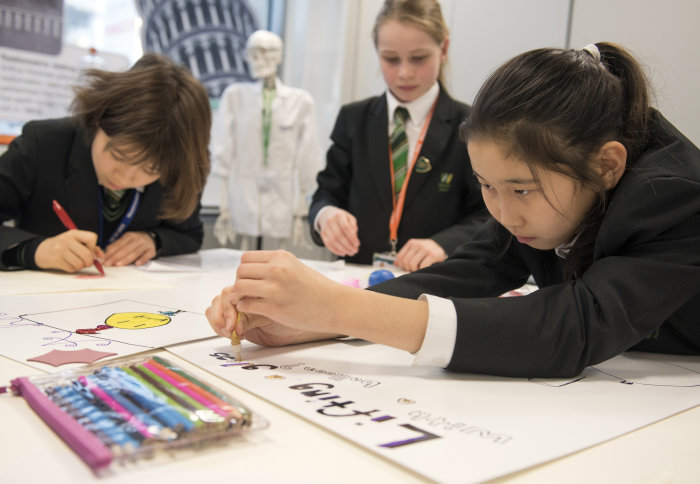Five grassroots Imperial projects given funding to engage with society

Five projects will share £10,000 to help them kick start their plans to engage with wider society from toddlers to teenagers and beyond.
The Societal Engagement Seed Fund is in its second year and aims to help Imperial staff and students develop and deliver new initiatives, increasing the diversity of schemes which engage with the public.
The winning schemes include projects working with young children to increase awareness of science, setting up a stall in a supermarket in Somerset to encourage young people and their families to aim for a career in STEM as well as an interactive theatre display on the theme of global environmental change.
Scientists and storytellers
One project is led by Professor Sarah Fidler and will involve a collaboration between scientists, storytellers and the charity CHIVA, developed to support young people who were born with HIV growing up to adults. This project will fund professional actors and story tellers to collect personal stories from young people with HIV growing up in the UK. Their stories will then be shared at events and developed into a film in order to help families and health providers understand the issues they face and help reduce stigma.
Professor Fidler said: “Whilst the treatment for HIV infection is very effective, young people growing up with HIV still endure huge stigma and ignorance amongst their peers, about HIV. They often have to live with it in secret. Sometimes they may struggle to find the best way to talk to people about their experiences of living with HIV.”
The second project follows on from a successful pilot in 2017 and involves interactive theatre for 16 to 18-year-olds. The theatre company Nexus will run workshops in schools and sixth form colleges to share Imperial research on the theme of global environmental change.

Dr Zoe Harris, who is leading the scheme, said: “By directly learning from young people about the kind of content and communications they enjoy most, the final performance will be more impactful and relatable for that target audience.”
Science in the supermarket
Dr Stuart Higgins leads on a project based in a Somerset supermarket where Imperial volunteers will demonstrate their research and aim to provide a fun positive experience of STEM for one weekend with the aim of promoting and encouraging the study of STEM subjects to families.
Dr Higgins said: “Young people in parts of Somerset are less likely to go to university than the UK average. Recent research has identified that interacting with science, and also scientists from a similar background, can help by showing a career in science is realistic and obtainable. This project also gives Imperial volunteers a great opportunity to find out what young people think of their current research!'
Early Inquirers
Dr Bianca Wilson is leading a project called Early Inquirers which will explore play-based inquiry and learning in STEM for the under-fives and will deliver fun and creative sessions in libraries and children’s centres in North Kensington and White City.
The scheme will also engage with early years practitioners to find out the barriers professionals face in supporting STEM for young children and how to increase their confidence.
Dr Wilson said: “We hope to engage families and children in fun, play-based scientific inquiry and develop a simple video, website and resources which families and practitioners can use to help them.”
'Slug glue'
The final project to be funded is Nurturing nature’s innovations: from slug slime to dragonfly wings and fly vision will be exhibited at the Royal Society Summer Science Exhibition in July 2018, bringing together experts from the Department of Bioengineering and the Natural History Museum for the first time.
The exhibit will enable visitors to discuss current research and ideas for the future with practising scientists and engineers from a virtual reality experience with the visual perception of a fly to experimenting with ‘slug glue’.
Article text (excluding photos or graphics) © Imperial College London.
Photos and graphics subject to third party copyright used with permission or © Imperial College London.
Reporter
Hannah MacLachlan
Communications and Public Affairs